Let's talk Golden Retrievers
Golden Retrievers are full of joyful exuberance. A very gentle breed, they have an excellent temperament and are friendly and affectionate to all around them. As at home in the heart of the family as they are on a search-and-rescue mission or working as a guide dog, the Golden Retriever is a remarkably versatile breed. When you add in their golden good looks and robust constitution, it’s no surprise they are one of the world’s most popular dogs.
Official name: Golden Retriever
Origins: Scotland
Drooling tendencies
3 out of 5Grooming needs
3 out of 5Shedding Level
4 out of 5Vocal
4 out of 5Physical activity needs
3 out of 5Compatibility
4 out of 5Warm weather?
2 out of 5Cold weather?
3 out of 5Environment
2 out of 5Can stay alone
2 out of 5Family pet?*
4 out of 5
| Male | Female |
|---|---|
| Height | Height |
| 56 - 61 cm | 51 - 56 cm |
| Weight | Weight |
| 30 - 34 kg | 25 - 30 kg |
| Life stages | |
|---|---|
| Puppy | Adult |
| 2 to 15 months | 15 months to 5 years |
| Mature | Senior |
| 5 to 8 years | 8 to 18 years |
| Baby | |
| Birth to 2 months | |
Drooling tendencies
3 out of 5Grooming needs
3 out of 5Shedding Level
4 out of 5Vocal
4 out of 5Physical activity needs
3 out of 5Compatibility
4 out of 5Warm weather?
2 out of 5Cold weather?
3 out of 5Environment
2 out of 5Can stay alone
2 out of 5Family pet?*
4 out of 5
| Male | Female |
|---|---|
| Height | Height |
| 56 - 61 cm | 51 - 56 cm |
| Weight | Weight |
| 30 - 34 kg | 25 - 30 kg |
| Life stages | |
|---|---|
| Puppy | Adult |
| 2 to 15 months | 15 months to 5 years |
| Mature | Senior |
| 5 to 8 years | 8 to 18 years |
| Baby | |
| Birth to 2 months | |
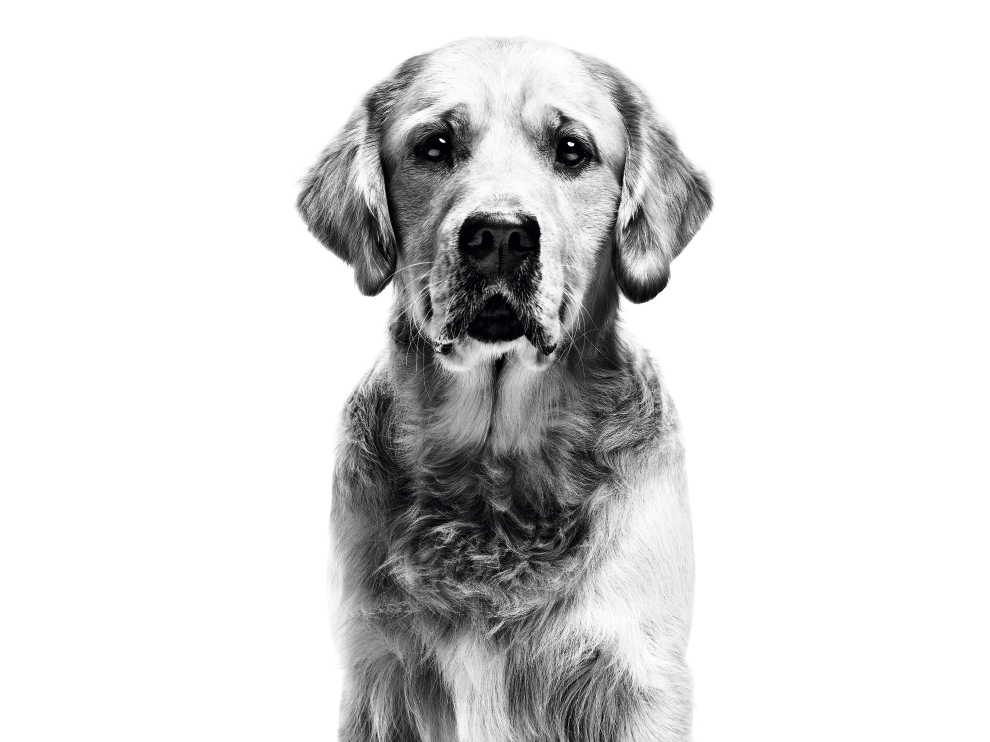
Get to know the Golden Retriever
All you need to know about the breed
With their bright and bouncy demeanor, it’s hard to believe that the Golden Retriever was originally bred as a finely-honed gun dog. Today, they are rather better known for their loyal and faithful temperament, that lovely lolloping stride and their glorious golden coat. The Golden Retriever also has a playful, puppyish side to their personality, even as an adult.
That said, they do retain some of the qualities from their former hunting days. Known for their great sporting and working prowess, Golden Retrievers have excellent tracking abilities. As such, they are often used by search-and-rescue teams in the hunt for missing people. At the same time, their gentle temperament makes them ideal as guide dogs for the blind or visually impaired persons. They make good therapy dogs, too.
One thing they definitely aren’t, however, is a watchdog. In fact, they’re more likely to wag their tails at an intruder than anything else!
Most of all, though, Golden Retrievers are perhaps best known as a cherished family pet. Great with children and other animals once trained, they form deep bonds with their human families–and the feeling is mutual. Along with German Shepherds and Labradors, Golden Retrievers are frequently cited as one of the three most popular breeds in the world.
In terms of their appearance, Golden Retrievers have a thick, water-resistant coat with a dense undercoat. This can vary in color from a pale gold to a deeper amber shade and everything in-between. The one constant is that it is very thick, and built to withstand the elements. But this does mean it requires a fair bit of grooming. Golden Retrievers are also known for being quite a high-shedding breed.
With their hunting-dog background, Golden Retrievers do need a fairly high level of daily exercise, whether that’s a walk, a jog or running after a ball. Retriever by name, retriever by nature, they like nothing better than fetching an object and bringing it back to you. So, if you can indulge your Golden Retriever in this, they’ll be your number one fan.
From head to tail
Physical characteristics of Golden Retrievers
1. 101 Retrievers
In July 2006, the Golden Retriever Club of Scotland organised a gathering at the ancestral home of the breed. During the event, a photo was taken, and, with 188 dogs, it is believed to hold the record for the most Golden Retrievers in one picture.
2. A dog’s dinner
This is a breed that loves to eat! As a result Golden Retrievers can easily become overweight. It is important, therefore, to keep treats to a minimum and be sure to opt for a high-quality, low-fat food. For more facts on the optimal diet for the Golden Retriever, see below.
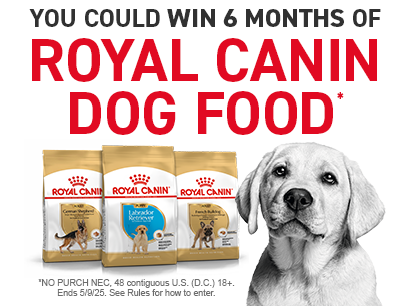
Enter our Spring Giveaway
History of the breed
In 1865, this keen hunter decided that he wanted to create a gundog that could cope with the tough terrain and harsh climate. So, he crossed his Yellow Retriever with the now extinct Tweed Water Spaniel, and added the Irish Setter and Bloodhound into the mix. As he kept careful notes of his findings, we have the full history of the Golden Retriever.
The early Golden Retrievers were first shown in England in 1908 and recognized by the Kennel Club there in 1911. At that point, however, they were classified as a ‘Retriever–Yellow or Golden’. Following the creation of the Golden Retriever Club in 1913, the name was changed. The Golden Retriever was inaugurated by the American Kennel Club in 1925.
Today, they are one of the most popular dog breeds across the world –though, interestingly, there are actually three different types of Golden Retriever: the English, Canadian and American. However, as there are only subtle differences between them, they are all classed as the same breed.
From head to tail
Physical characteristics of Golden Retrievers
1.Ears
2.Face
3.Fur
4.Body
5.Tail
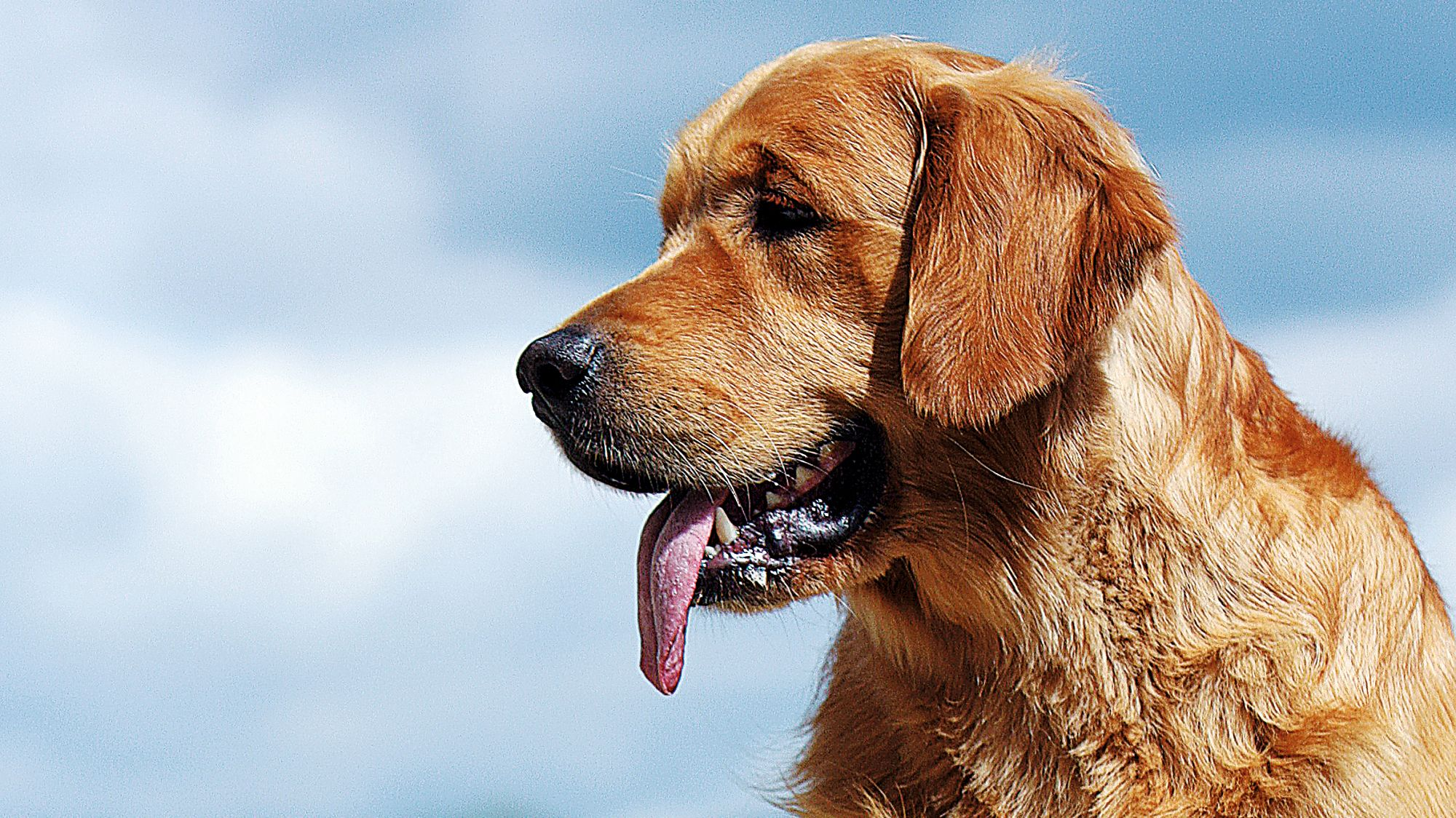
Things to look out for
<style type="text/css"></style>From specific breed traits to a general health overview, here are some interesting facts about your Golden Retriever
Be sure to check their ears regularly
Among the more common afflictions that can affect the Golden Retriever is a condition called ‘otitis’—otherwise known as ear infections. This is often caused by an allergy and can be painful and itchy for the dog. In more serious cases, it can also result in hearing damage. As a result, ears should be checked weekly for any sign of infection, and, in the event of anything unusual, your Golden Retriever should be taken straight to your vet. Professional examinations are also recommended at least twice a year.
They can also experience joint complaints
Like a number ofother dog breeds, Golden Retrievers have a genetic predisposition to something called hip dysplasia–a condition in which the ball and socket become out of kilter. This can lead to pain and inflammation and also result in arthritis later on in the dog’s life. However, the condition can be managed, so have a chat with your vet about the options available. For example, if your Golden Retriever is carrying excess weight, this can magnify the condition, so it’s important that they have a carefully balanced diet. In severe cases, surgery can also be an option.
Be aware of any changes in their body
Unfortunately, Golden Retrievers can also be susceptible to several types of cancer, including lymphoma, hemangiosarcoma and mast cell tumours.
As early detection is key, it’s important to keep an eye out for any unusual symptoms – in particular any lumps and bumps, obvious pain or labored breathing. Your Golden Retriever’s grooming sessions can be a good opportunity to give your dog the once-over. Unfortunately, if an internal organ is affected, it can be much harder to spot. So if your Golden Retriever seems a bit off-color, refuses to eat or loses weight, schedule an appointment with your veterinarian. Comprehensive examinations with your veterinary team are also recommended at least twice a year.
Tailored nutrition for Golden Retrievers
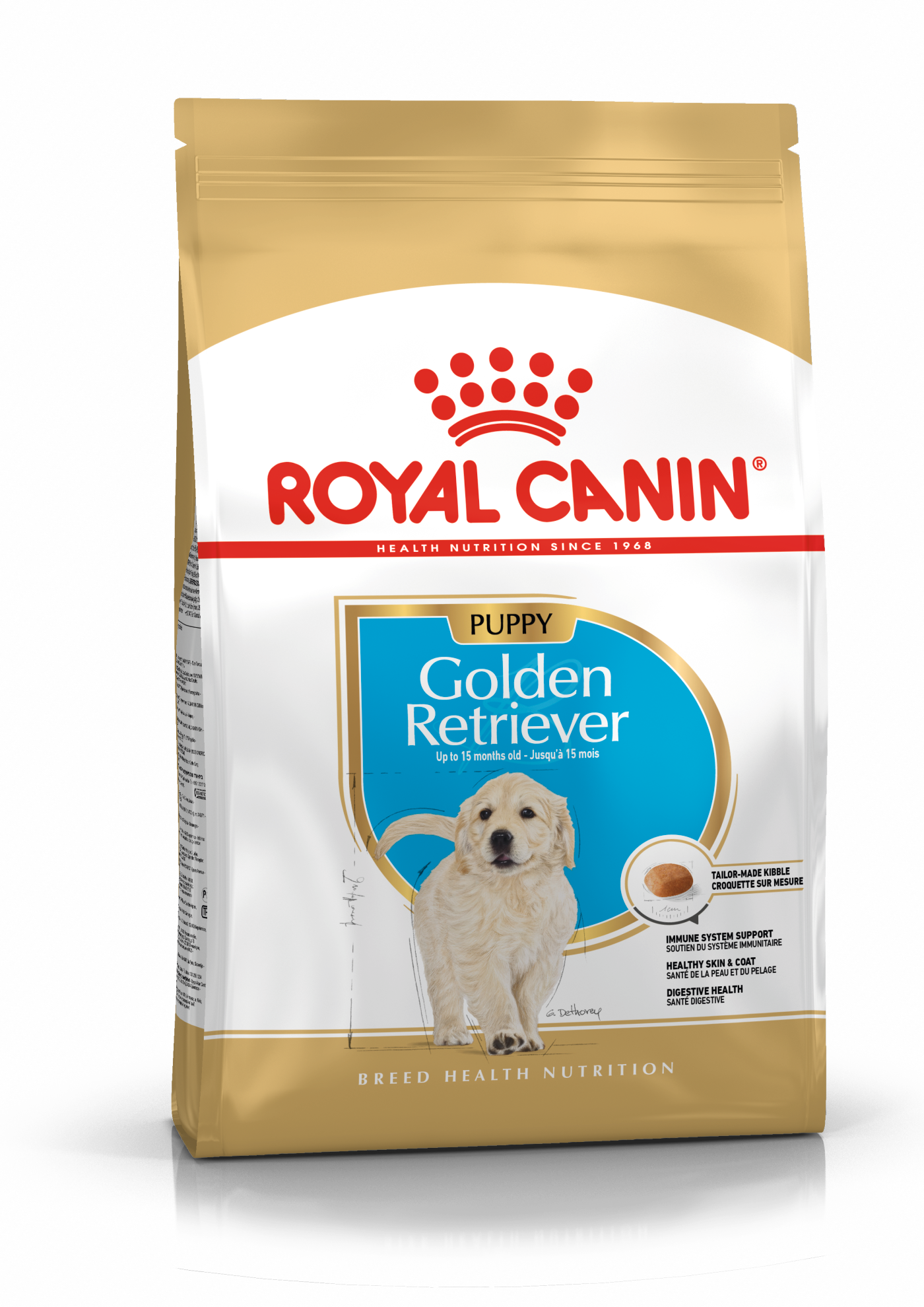
When choosing food for a Golden Retriever, there are many factors to consider: their age, lifestyle, activity level, physiological condition, and health including potential sickness or sensitivities. Food provides energy to cover a dog’s vital functions, and a complete nutritional formula should contain an adjusted balance of nutrients to avoid any deficiency or excess in their diet, both of which could have adverse effects on the dog¹. Energy intake may also have to be adapted to the climatic conditions. A dog that lives outdoors in winter will have increased energy requirements. The following recommendations are for healthy animals. If your dog has health problems, please consult your veterinarian who may recommend an exclusively veterinary diet.
Immune System Support
As puppies grow, they experience big changes. During this period, the puppy's immune system develops gradually. This formula helps support your puppy's natural defenses with an exclusive complex of antioxidants (including Vitamin E).
Healthy Skin & Coat
Golden Retriever Puppy helps support the skin's role as a barrier via various nutrients (including EPA and DHA), to help maintain skin and coat health.
Digestive Health
Formulated with high quality protein and prebiotics to support digestive health and a balanced intestinal flora, contributing to optimal stool quality.
Exclusive Kibble
The Golden Retriever has teeth that meet in a scissor bite, therefore the kibble's size, shape and texture is designed specifically for the breed and encourages them to chew.
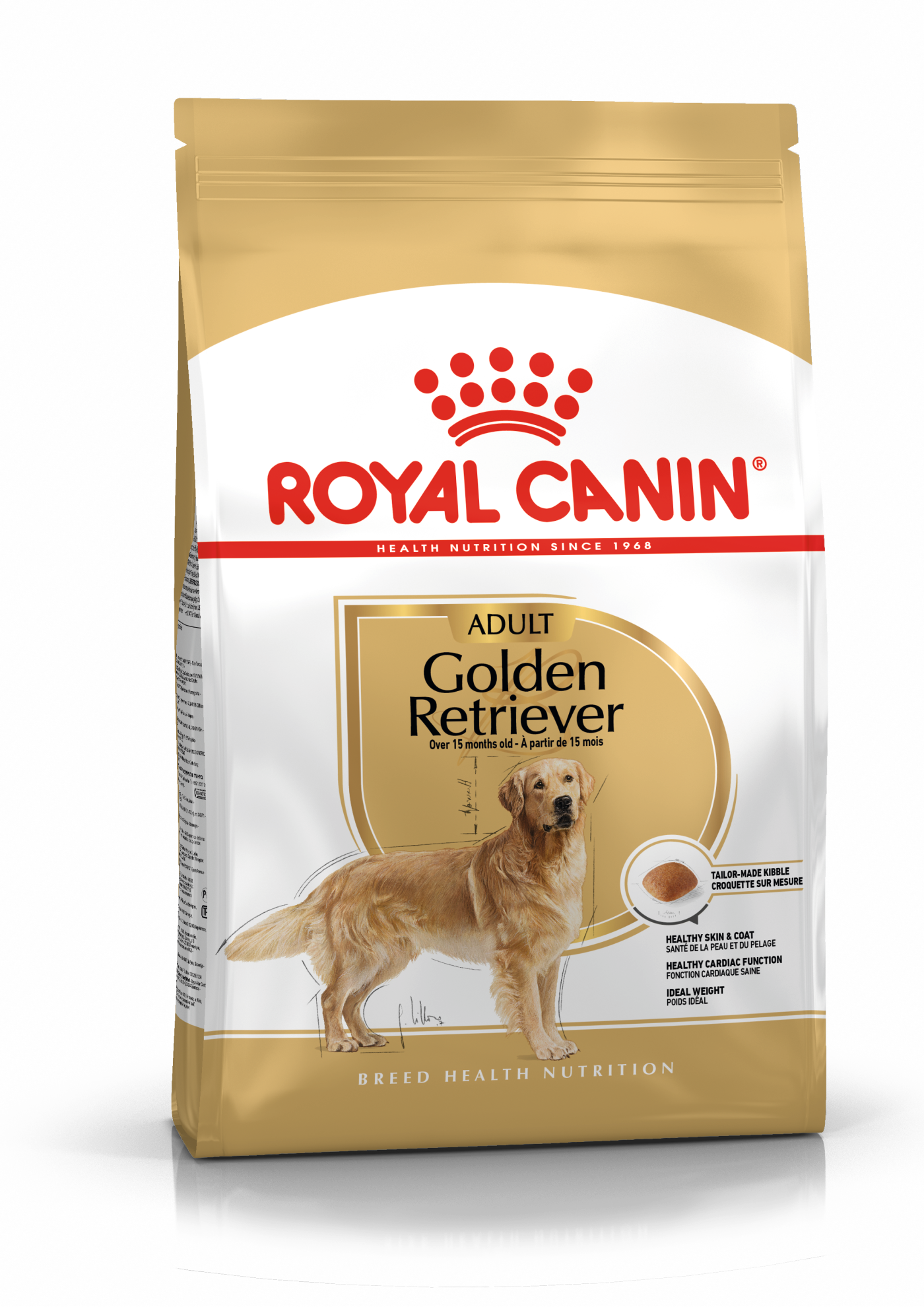
The main nutritional goals for adult Golden Retrievers are:
Healthy Skin & Coat
The skin and coat reflects how healthy the dog is. The formula helps support the skin's role as a barrier with an exclusive complex of nutrients to help maintain skin and coat health (EPA and DHA).
Healthy Cardiac Function
Golden Retrievers can be prone to cardiac sensitivity. The formula contains specific nutrients (taurine, EPA and DHA) to help support healthy cardiac function.
Ideal Weight
Excess weight gain can impact the Golden Retrievers health, and therefore an appropriately balanced food is necessary for their well-being. Golden Retriever Adult helps maintain their ideal weight through an appropriate calorie and fat content.
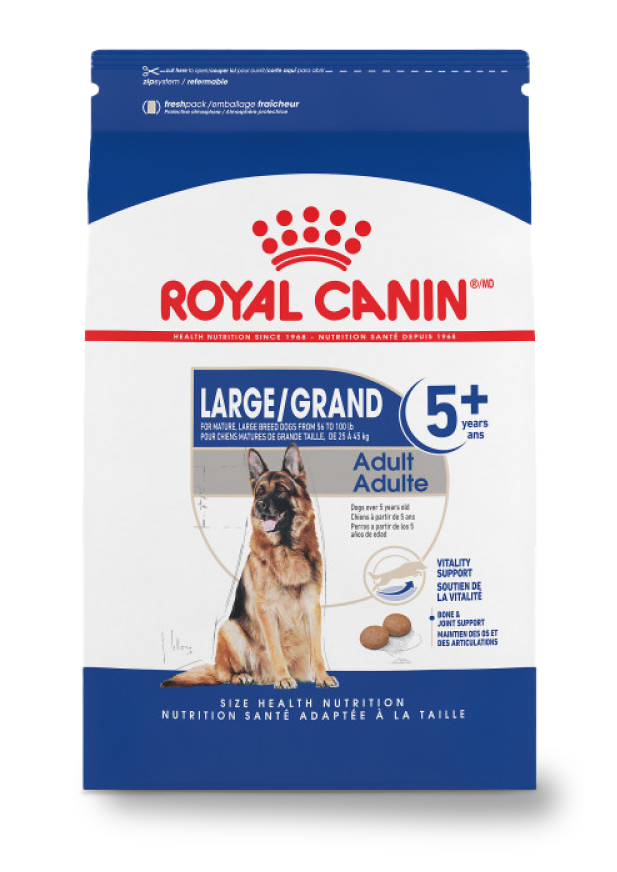
After 5 years old, Golden Retrievers will start facing the first signs of aging. A formula enriched with antioxidants will help maintain their vitality, and specific nutrients, such as chondroitin and glucosamine, will help support healthy bones and joints ². Aging is also accompanied by the modification of digestive capacities and particular nutritional requirements, so food for older Golden Retrievers should have the following characteristics:
Vitality Support
Precisely formulated with nutrients to help keep large breed dogs active and fight the first signs of aging. Contains an exclusive complex of antioxidants to help support cellular health.
Bone & Joint Support
Helps support large breed dogs' healthy bones and joints, that can be placed under stress by body weight.
High Digestibility
Helps promote optimal digestion with an exclusive formula including very high quality protein and a balanced supply of dietary fiber.
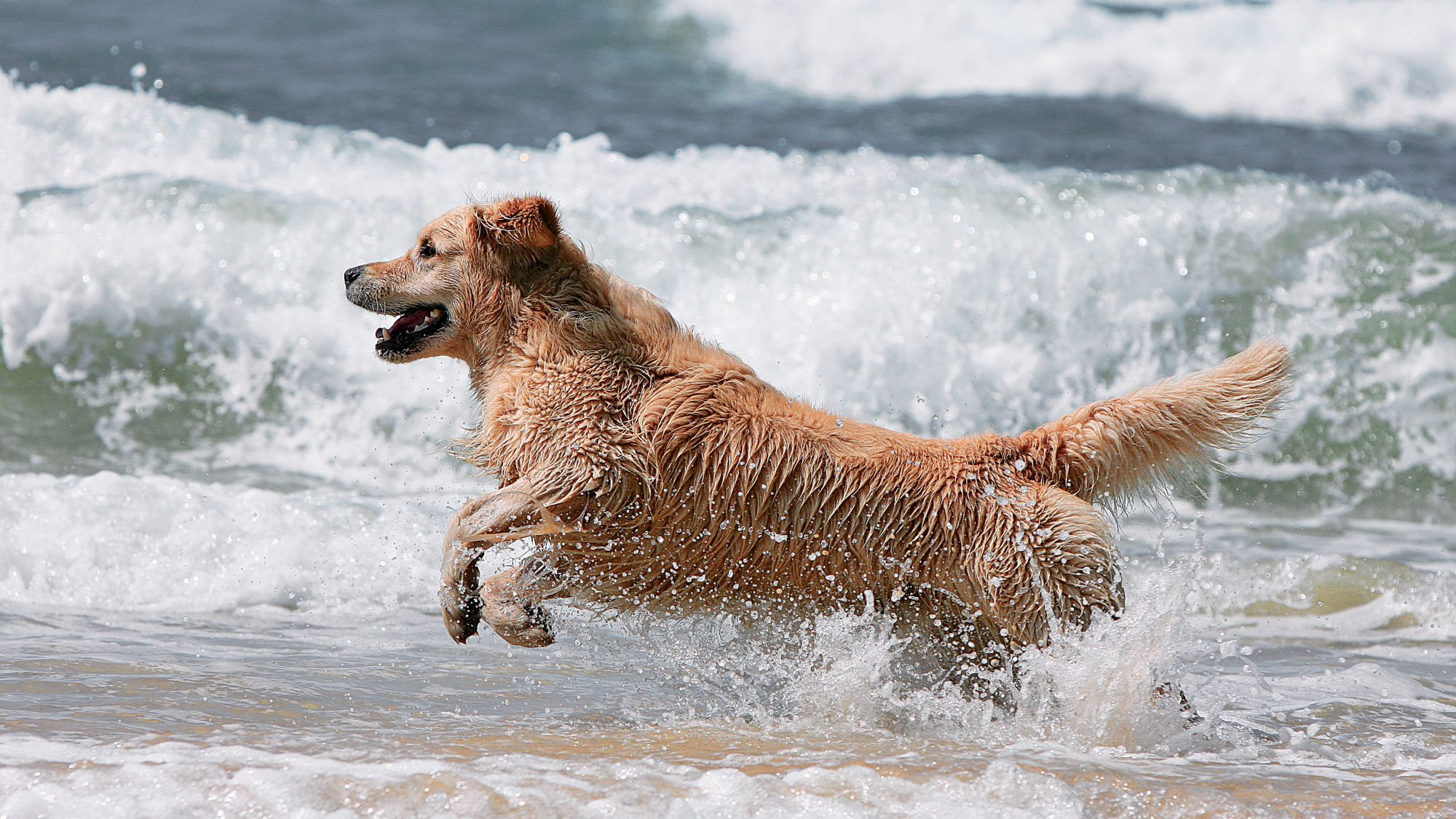
Caring for your Golden Retriever
Grooming, training and exercise tips
As former gun dogs, Golden Retrievers require plenty of outdoor exercise, so adult dogs should be getting at least an hour a day, but ideally two or more. If they don’t have enough exercise, Golden Retrievers can become a little bit boisterous, so a good long walk or run will help them to burn off any excess energy. Conversely, some dogs, given the opportunity, will quite happily turn into couch potatoes, which can lead to weight gain, so exercise is important all-round. Given the breed’s hunting heritage, Golden Retrievers usually enjoy fetching and swimming, so it’s worth being a bit creative with their activity ⁴.
One of the few catches of having a Golden Retriever is that their long coats can require a fair bit of maintenance. Especially as they love nothing better than tearing through muddy fields, rolling in a puddle, or enjoying a swim (which, by the way, they are a big fan of). In addition, Golden Retrievers are prone to shedding quite profusely. They should therefore be brushed at least twice a week, and daily during the shedding seasons. Their coat should also be checked after their walks to make sure nothing is tangled in their fur. They will also need regular baths to keep them smelling sweet. Trimming their nails, checking their ears and brushing their teeth should all be done regularly, too.
A smart and intelligent breed, Golden Retrievers are also eager to please – so this makes training a pleasant experience for both dog and owner alike. As they’re also very food-motivated, treats can be an extra enticement – as long as they are healthy ones! Think about taking treats from their daily food portion. Start your Golden Retriever early with regular socialization and puppy-training classes and they’ll soon get the hang of things. Also renowned for their excellence in agility and obedience classes, many go on to excel in the show ring. Your Golden Retriever’s training can also be supported with regular games back at home –another good bonding opportunity ⁵.
As former gun dogs, Golden Retrievers require plenty of outdoor exercise, so adult dogs should be getting at least an hour a day, but ideally two or more. If they don’t have enough exercise, Golden Retrievers can become a little bit boisterous, so a good long walk or run will help them to burn off any excess energy. Conversely, some dogs, given the opportunity, will quite happily turn into couch potatoes, which can lead to weight gain, so exercise is important all-round. Given the breed’s hunting heritage, Golden Retrievers usually enjoy fetching and swimming, so it’s worth being a bit creative with their activity ⁴.
One of the few catches of having a Golden Retriever is that their long coats can require a fair bit of maintenance. Especially as they love nothing better than tearing through muddy fields, rolling in a puddle, or enjoying a swim (which, by the way, they are a big fan of). In addition, Golden Retrievers are prone to shedding quite profusely. They should therefore be brushed at least twice a week, and daily during the shedding seasons. Their coat should also be checked after their walks to make sure nothing is tangled in their fur. They will also need regular baths to keep them smelling sweet. Trimming their nails, checking their ears and brushing their teeth should all be done regularly, too.
A smart and intelligent breed, Golden Retrievers are also eager to please – so this makes training a pleasant experience for both dog and owner alike. As they’re also very food-motivated, treats can be an extra enticement – as long as they are healthy ones! Think about taking treats from their daily food portion. Start your Golden Retriever early with regular socialization and puppy-training classes and they’ll soon get the hang of things. Also renowned for their excellence in agility and obedience classes, many go on to excel in the show ring. Your Golden Retriever’s training can also be supported with regular games back at home –another good bonding opportunity ⁵.
7/7
All about Golden Retrievers
While it’s true that there is only one breed of Golden Retriever, there are three different sub-types: the English, Canadian and American. In general, English Golden Retrievers tend to have a stockier build and a lighter-colored coat than the others. The Canadian and American Golden Retrievers have a similar frame to each other but Canadians have a thinner coat.
While Golden Retrievers can cope better than some breeds when left alone, they actually like nothing better than hanging out with their human family. Also, if separated from them for too long or too frequently, separation anxiety can occur as with any breed. This can lead to barking, howling and destructive behaviour. So, in summary, it’s best to leave your Golden Retriever as little as possible.
Suggested Breeds
Read more on this topic
Sources
Like & share this page